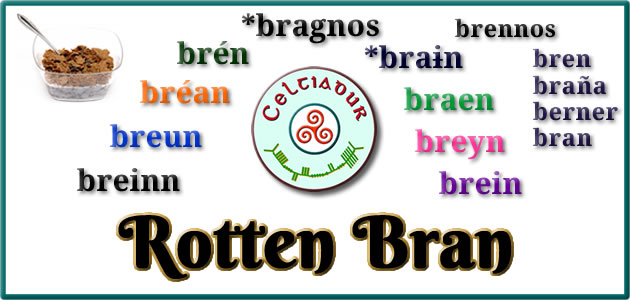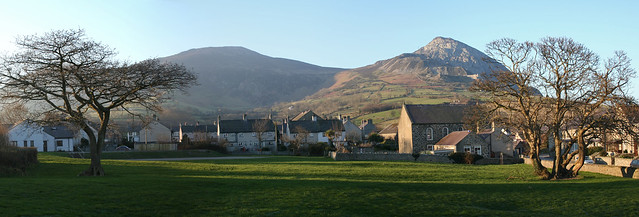Podcast: Play in new window | Download
In this episode we discover the rotten Celtic roots of the English word bran, the Galician word braña (meadow, bog), and related words in other languages.

The Proto-Celtic word *bragnos means rotten. It comes from the PIE *bʰreHg- (to smell, have a strong odour) [source].
Descendents in the modern Celtic languages include:
- bréan [bʲɾʲiːa̯nˠ] = foul, putrid, rotten or to pollute in Irish
- breun [brʲeːn] = foetid, putrid, disgusting or filthy in Scottish Gaelic
- breinn = foetid, loathsome, nasty or offensive in Manx
- braen [braːɨ̯n] = rotten, putrid, corrupt or mouldy in Welsh
- breyn = putrid or rotten in Cornish
- brein [ˈbrɛ̃jn] = rotten or uncultivated in Breton
Words from the same Proto-Celtic root, via the Gaulish brennos (rotten) and the Latin *brennos, include bran in English, berner (to trick, fool, hoodwink) in French [source].
The Asturian word braña (pasture, meadowland), and Galician word braña (mire, bog, marsh, moorland) possibly also come from the same Proto-Celtic root [source].
Words from the same PIE root include flair, fragrant, and bray in English, and брага [ˈbraɡə] (home brew) in Russian [source].
More about words for Rotten and related things in Celtic languages.
You can find more connections between Celtic languages on the Celtiadur blog. I also write about words, etymology and other language-related topics on the Omniglot Blog.
Radio Omniglot podcasts are brought to you in association with Blubrry Podcast Hosting, a great place to host your podcasts. Get your first month free with the promo code omniglot.

